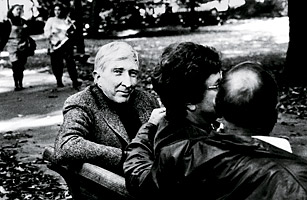
If John Updike ever had a bad day, he never let on — not even on the golf course, where his scorecards were so precise they looked like little annotated galley proofs. He was a cheerful, charming man, a small-town Pennsylvanian transplanted to small-town New England who was blessed with one of the greatest prose styles of the 20th century. Surely he knew how large his gift was, but, perhaps out of gratitude or superstition, it amused him to pretend otherwise. He lived comfortably but nevertheless put in the hours of a Depression-era clock puncher, reporting every morning to one of several rooms he dedicated to writing, and created an immense body of work — novels, stories, essays, poems — that amounts to a funny, sage, wistful love letter to the America he grew up in.
—Charles McGrath
McGrath, a former deputy editor of the New Yorker, is a writer-at-large at the New York Times